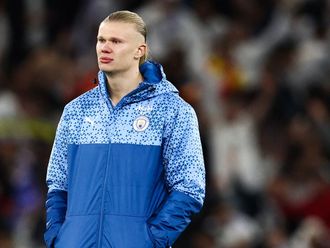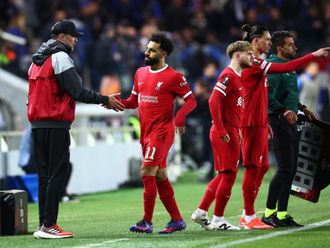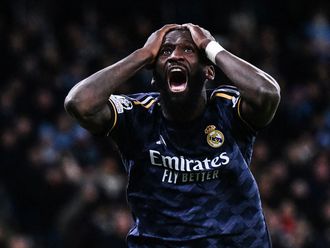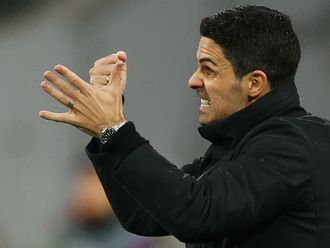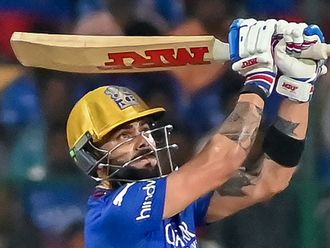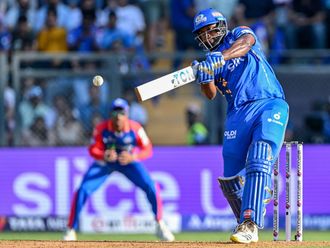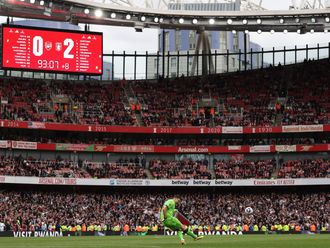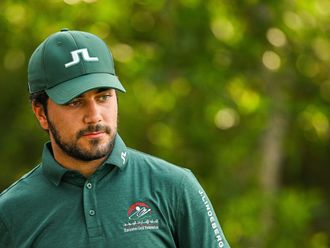St Petersburg: The Confederations Cup got under way in St Petersburg on Saturday evening with Russia managing a convincing 2-0 win against New Zealand in front of a roaring 50,000 crowd.
With a year to go until the World Cup, the average Russian fan is not worried about potential stadium violence or any of the other controversies discussed in the foreign press. Anxiety is reserved for one thing only: whether the Russian team will put in a respectable performance on home soil. The national side have become something of a laughing stock in recent years and the players are well aware they have a lot to do to win back the affections of the nation before the World Cup starts.
“We have a very difficult target at the Confederations Cup — to make the Russian people fall in love with the national team again,” said the striker Fedor Smolov, who scored the second goal against New Zealand, in an interview with the Observer in Moscow a few days before the game.
The win against New Zealand was comfortable, and the team played some fluent attacking football at times. But anything other than a convincing win against such opposition would have caused major worries for Russia, and the team will face a much sterner test when they take on Portugal in Moscow on Wednesday.
Slowly, a buzz of excitement is building as the realisation dawns that the World Cup is just round the corner, but the level of hopes invested in the national team remains low. “Among the public, I don’t think that there are big expectations at the moment, so maybe it’s good that there’s not too much pressure on us,” said Smolov.
The last time Russia fans were really celebrating was Euro 2008, when Guus Hiddink led the team to a quarter-final victory over Holland, leading to wild scenes of celebration on the streets of Moscow and the team being welcomed home as heroes despite a crushing semi-final defeat by Spain. Since then, there has been what has felt like a steady and sustained decline, culminating in a disastrous performance by an ageing, uninspiring team at Euro 2016.
Russia made little contribution to the tournament save for the appalling scenes of fan violence in Marseille. The team scraped a 1-1 draw with England before losing 2-1 to Slovakia and finishing with a humiliating 3-0 defeat by Wales.
“After the Euros everybody hated us. Now people can see the national team has spirit, and is like a family, and maybe that’s why our performances have got better,” said Smolov.
Leonid Slutsky resigned as manager after the tournament and the Russian Football Union appointed Stanislav Cherchesov, who had spent the previous decade managing an array of Russian Premier League teams and a short stint at Legia Warsaw. Before Slutsky, the team had been managed by a trio of big-name foreign coaches — Hiddink, Dick Advocaat and Fabio Capello — but the RFU wanted a Russian coach to prepare the team for the home World Cup.
“The Russian mentality is very different so it’s good psychologically to have a Russian coach,” said Smolov. Every player in Russia’s Confederations Cup squad plays in the domestic league, where the standard is far off the top European leagues, and some high up in the Russian Football Union (RFU) hope a few players might be bought by western European clubs over the summer, to give them at least a season of playing at a higher level before the World Cup.
There have been rumours Arsenal could sign the midfielder Aleksandr Golovin, and Smolov is angling for a move to “one of the top four leagues” over the summer. Smolov portrays himself as one of a new generation of Russian player. He is well-read, good humoured, and unlike Andrei Arshavin, formerly at Arsenal, or Roman Pavlyuchenko, who played for Spurs, he speaks decent English. After a stuttering early part of his career, Smolov, 27, has hit a rich vein of form in the past two seasons, scoring 38 times in 51 games for Krasnodar.
As well as being ambassadors for Russia abroad, Smolov hopes playing in a foreign league will help players at the World Cup. “Let’s be honest: the European leagues are better and stronger, and if players are playing on a higher level it means we are better prepared for the national team,” he said.
The former sports minister and RFU chief Vitaly Mutko reportedly set Cherchesov a target of making the semi-finals of the World Cup, a task that looks fairly unlikely at the moment. But more importantly than what stage of the tournament the team reach, Russian fans will want them to put in performances they can be proud of, unlike the Euro 2016 effort.
— By Shaun Walker, Guardian News & Media Ltd, 2017


